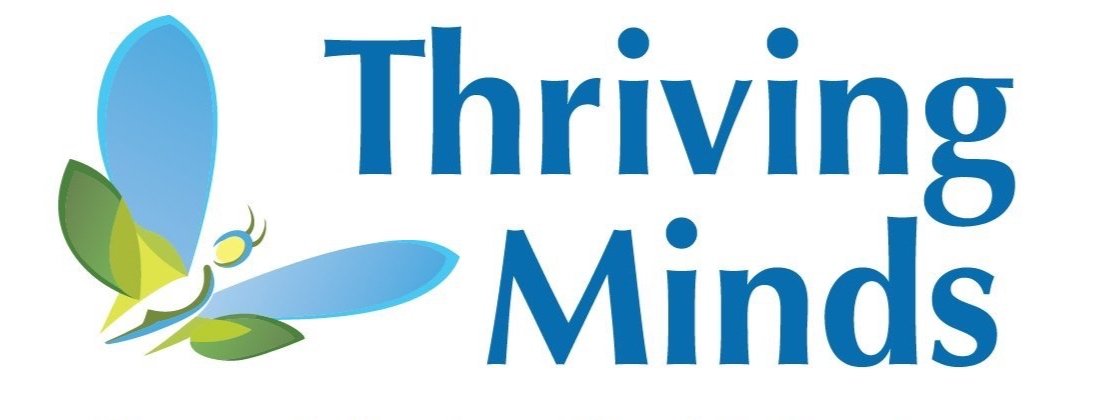If your child is blinking, clearing their throat, jerking their head, or making repeated movements or sounds they “can’t stop,” you may be wondering whether it’s a habit, anxiety, or something else. These symptoms can be confusing for families. Here’s what parents need to know about tics.
Read MoreYou tell your child they’ll lose tablet time if they keep yelling—and they yell louder. You remind them again, and they shrug, “I don’t care!” Sound familiar? Here’s what’s really happening when consequences don’t work, and what you can do instead.
Read MoreWhen a child has ADHD, it’s easy to focus on challenges—distractibility, restlessness, or difficulty following through. But children are more than their struggles. Strength spotting is a powerful way to help kids recognize and use their unique talents, boosting confidence, resilience, and motivation.
Read MoreThe start of a new school year brings fresh opportunities for growth, and for many children, it also brings challenges, from tackling harder assignments to navigating new routines. As parents, our first instinct is often to step in and smooth the path. While this comes from a place of love, stepping in too often can unintentionally prevent children from building the skills and confidence they need to handle challenges on their own. This year, try a different approach: focus on noticing the good and reinforcing independence while giving your child space to work through difficulties. This combination can help them grow their resilience, problem-solving skills, and self-confidence.
Read MoreHow much screen time is too much? A sweeping new analysis in Psychological Bulletin sheds light on the complicated dance between young children’s digital habits and their emotional health. Drawing from 117 long-term studies and nearly 293,000 kids under age 10, researchers found a two-way link: more screen use often predicts more social and emotional struggles, and vice versa.
Read MoreSummer brings a welcome shift for many families: less pressure, more flexibility, and a break from the fast pace of the school year. For some children, this change leads to easier behavior, fewer meltdowns, and more time to recharge emotionally. With fewer demands, it’s natural (and often necessary) for families to relax routines and take a breather.
Read MoreWhile we often focus on thoughts, feelings, and behaviors when supporting a child’s mental health, it’s just as important to consider what’s happening in the body. Emotional wellness is built on a foundation of physical self-care. When children struggle with emotional regulation—meltdowns, irritability, or trouble focusing—it’s easy to assume the problem is purely behavioral. But often, their body is trying to tell us something. The PLEASE skill—taught in Dialectical Behavior Therapy (DBT)—offers a simple, effective way to reduce emotional vulnerability by checking in on five key areas that influence mood and behavior.
Read MoreMany kids experiment with the truth as they grow — not to be deceitful, but because they’re still figuring out how to handle emotions, avoid trouble, and navigate complex situations. From insisting they didn’t spill the juice to denying they broke a toy; these moments are often less about defiance and more about developing skills like emotional regulation and social understanding.
Read MoreMindfulness is the practice of paying attention to the present moment with curiosity and without judgment. For children, mindfulness can be a valuable tool in developing emotional regulation, focus, and resilience. Spring is a perfect time to practice mindfulness outdoors, as the season brings new sights, sounds, and sensations to notice.
Read MoreWhen it comes to shaping behavior, attention is one of the most powerful tools parents have. Research shows that children repeat behaviors that get attention, regardless of whether that attention is positive or negative. That’s why it’s so important to intentionally give more attention to positive behaviors than to undesirable ones.
One of the best ways to ensure children receive the right balance of attention is through Child-Directed Interaction (CDI) using PRIDE skills—a structured approach to play that strengthens positive behavior while also fostering a close parent-child bond.
Read MoreThis February, let’s talk about love—the kind that builds connection, trust, and understanding within your family. At Thriving Minds, we’re focusing on validation, a powerful way to strengthen your relationship with your child. Validation is more than agreeing with someone; it’s about recognizing their emotions, showing you value their perspective, and fostering a deeper connection, even when you disagree.
Read MoreOne of the most common questions parents ask is, “How will I know when my child no longer needs therapy?” It’s a great question, and the answer lies in understanding that therapy is not meant to last forever. Instead, it is a focused process with clear goals and milestones to guide progress. Here’s what to know about when it might be time to celebrate your child’s growth and consider stepping back from regular sessions.
Read MoreThis month, we’re exploring obsessive-compulsive disorder (OCD) in children and adolescents—what it is, what it isn’t, and how to recognize when everyday behaviors might signal need for further evaluation.
Read MoreAs Halloween approaches, many children look forward to dressing up, trick-or-treating, and celebrating with their families. However, Halloween can also introduce some fear and anxiety due to spooky decorations, costumes, and unfamiliar situations. As parents and caregivers, Halloween offers a unique opportunity to help children face their fears in a safe, supportive environment. By guiding them through these experiences, you can teach valuable lessons about bravery and resilience.
Read MoreAre you a parent or teacher trying to manage your child's tantrums? Learn how to address the underlying causes of emotional outbursts and practice proven strategies that will help you successfully deal with temper tantrums.
Read More















